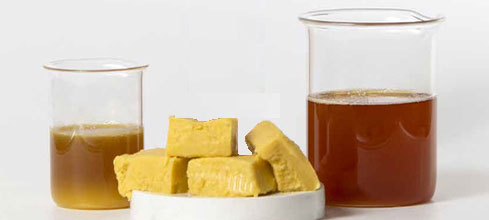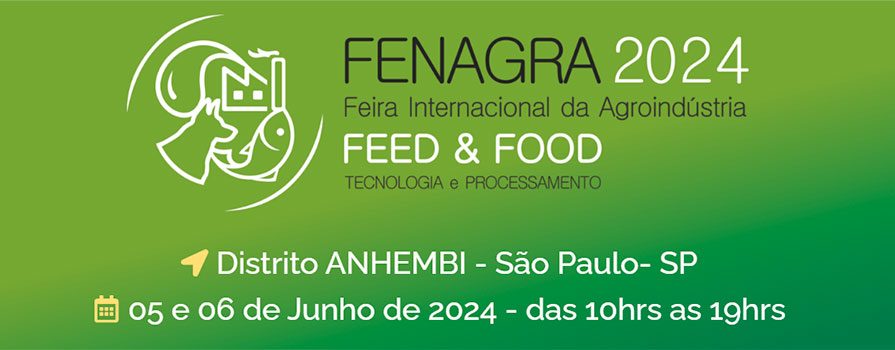
Considered one of the world's main producers of animal proteins, Brazil, in 2018 alone, recorded the slaughter of 31,901 thousand heads of cattle, 44,201 thousand heads of pigs and 5,698,494 billion heads of chickens, according to a survey by Ubrabio – União Brasileiro do Biodiesel e Bioquerosene . based on IBGE data. Using these data, we can see that the country is among the world's largest players in animal fat, with a production of 1.9 million tons, of which 1.2 million tons are beef tallow.
If in the past this type of animal fat produced by animal recycling had a low added value, with the soap industry as its main consumer, today the situation has changed. It is an important source of lipids, palatable, highly energetic and composed basically of triglycerides, providing a reduced cost in feed formulation (remembering that its use is prohibited in the diet of ruminants); it is also safe and stable, free from anti-nutritional factors; a source of fat that is stable at room temperature and a good alternative to the use of vegetable sources in the production of biodiesel. Due to these characteristics, its application is much more widespread. According to an estimate by ABRA – Brazilian Association of Animal Recycling, fat of animal origin is currently directed to the following markets: biodiesel (37.1% – in 2018. 28% of Brazilian biodiesel was produced using animal fats as raw material), hygiene and cleaning (27.4%), animal production (26.5%), pet food (5.8%) and other industries (3.2%). Beef tallow is the second most used raw material in the production of biodiesel, with a share of 13.2%, behind soybean oil with a share of 70.1%.
Caio Torres, broker specializing in animal fats and proteins at Aboissa Commodity Brokers, celebrates export results. The falling domestic market price during the first half of the year and the increase in the dollar exchange rate were factors that helped position Brazilian beef tallow exports as an interesting alternative. added to the attractive prices charged by European buyers. “In July – a period in which domestic market prices were reaching their lowest level – we exported more than 5,000 tonnes of raw tallow to Europe in bulk. Among the main countries purchasing Brazilian beef tallow in the last four years, we have the Netherlands (23%) and Italy (17%) for the biodiesel market; and Nigeria (19%) for the soap market.”
The Aboissa expert states that the challenges in exporting tallow begin with the high internal cost of logistics and port expenses. “As it is a product with low added value, any extra cost with operational issues could make the business unviable.” Caio adds that it is important to know the legislation of the destination country and be qualified to carry out the operation. Furthermore, it is essential to know the buyer’s specification analysis method to ensure quality.”
Internal consumption is also quite representative for Aboissa's business. “There was an increase in the share of tallow in relation to other animal fats and this is due to demand from the biodiesel sector. Until July this year, the share of the domestic tallow market was 42%, while last year it was 31%”, explains Caio.
Although the biodiesel market represents around 65% of the total business generated by beef tallow, at Aboissa the first half of the year presented favorable conditions for tallow buyers in Brazil for the production of oleochemicals. Despite being promising, the representativeness of sales for this sector was around 8%. Even though it is a small portion, it meant an increase of 15% compared to last year's volume. “There is also an effort on the part of some suppliers to seek a change in legislation for the use of beef tallow in the food market”, he recalls.
Even celebrating the results, the broker does not fail to mention two major difficulties when working with products of animal origin: storage and transportation. “Although tallow is an asset with technical and physical specificities, it is far from being one of the main products in slaughterhouses. As by-products have a relatively low added value, there is no interest in conducting a rigorous process in storing the spoils to guarantee a product with stable quality. The precarious condition of roads also contributes to expensive logistics and, often, it is unfeasible for efficient transport in collections from grease plants”, he analyzes.
Regarding the projections for the beef tallow market, according to the Aboissa specialist, they are good. “The production of animal fat is related to meat production and, for the latter, the projection is for growth, at the same time as an increase in demand from the biodiesel sector is expected. With these two aspects alone we would already have favorable conditions, but added to this is the volatility of soybeans, which influences the price of beef tallow. As the outlook for the next soybean harvest is one of scarcity, consequently a low production of soybean oil, we expect a very strong tallow price”, analyzes Caio.
Source: Brazilian Grease Magazine













